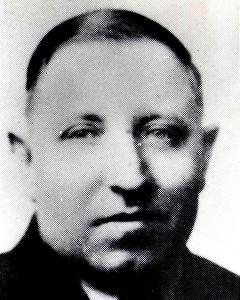In celebration of Gay History Month

In honor of Gay History Month I will be posting on leaders in gay history, I will include an interesting tidbit, essay portion, or biography of a historical LGBT figure. Tune in each Friday for the remainder of the month to take a brief glimpse into gay history and the gay and lesbian pioneers who have lead the fight for LGBTQ rights and equality.
Today I am posting the first two paragraphs of an essay by Henry Gerber (1892-1972). The essay was in response to “The Riddle of Homosexuality” by W. Beran Wolfe, which appeared in the April 1932 issue of “The Modern Thinker”.
The interesting thing about the Gerber essay is that it pre-dates World War II and if you did not know it was from 1932 it could be from any magazine of this day and age.
Henry Gerber was a pioneer in gay civil rights (back in the early 1900’s gays referred to themselves as “inverts”). On December 24, 1924 the state of Illinois issued a charter to the non-profit organization called the Society for Human Rights, founded by Gerber and was the first organized gay rights group. The organization was described as “an advocacy group for people with ‘mental abnormalities’".
The Society or Human rights published the first magazine for gays, “Friendship and Freedom”. Unfortunately neither the magazine nor the organization lasted long, within a few months of the society's incorporation, Chicago police shut them down.
After reading the article by W. Beran Wolfe, M.D., in the April issue of The Modern thinker, one cannot but deeply sympathize with the inverts [gays] for being the world’s eternal scapegoats. In the early Middle Ages he Papacy stipulated that “sodomers, heretics and sorcerers be burned.” When the legal control of the population slipped from the hands of Mother Church into that of the legislatures and politicians, better times came for the homosexuals in that their sexual “crimes” were considered less heinous. After Napolean had written his liberal code, homosexuals were no longer molested by the law in Latin countries, but the Anglo-Saxon world, in England and the United States, persecution of them is still in vogue, and as recently as the year 1915 the legislature of the State of California passed a new law, extending the scope of the term of sodomy. Today a more lenient attitude is being shown to homosexuals by the law. On October 16, 1929, the German committee of the Reichstag, discussing the new German legal code, proposed to abolish punishment for homosexual acts per se, between men, and in Russia, of course, the medieval persecution of homosexuals was repudiated with religious superstitions.
Now, that the inverts [gays] have almost escaped the stake and the prison, the psychoanalysts threaten them with the new danger of the psychiatric torture chamber. It is not to be wondered that a priest, a legislator and a psychoanalyst should be interested only in their dogmas. The priest is as much convinced of his sin theory as the legislator is sure that prison is the cure of crime, and the psychoanalyst, not a bit less, is certain that his therapy will bring back the erring homosexual to the normal fold. But he is strangely silent on the method.
You can read the rest of Henry Gerber’s essay in “We Are Everywhere; A historical sourcebook of gay and lesbian politics” compiled by Mark Blasius and Shane Phelan (in my opinion a ‘must have’ for every library!).
As you can see it appears we have come full circle in the fight for our rights. In 1932, while very week, the Pope was still claiming homosexuality as a sin beyond redemption, today is no different except that he no longer requests that gays should be burned, (although if he thought he could get away with it he probably would).
We have come a long way in the LGBT civil rights movement, we have gained ground in equality in the work place, tolerance and acceptance in schools, and it is certainly easier to be out of the closet today than 100 years ago. All thanks to our gay pioneers like Henry Gerber.
For his efforts to start the first Gay civil rights group in America nearly 90 years ago, Henry Gerber is our Gay Pioneer of the week.

<< Home